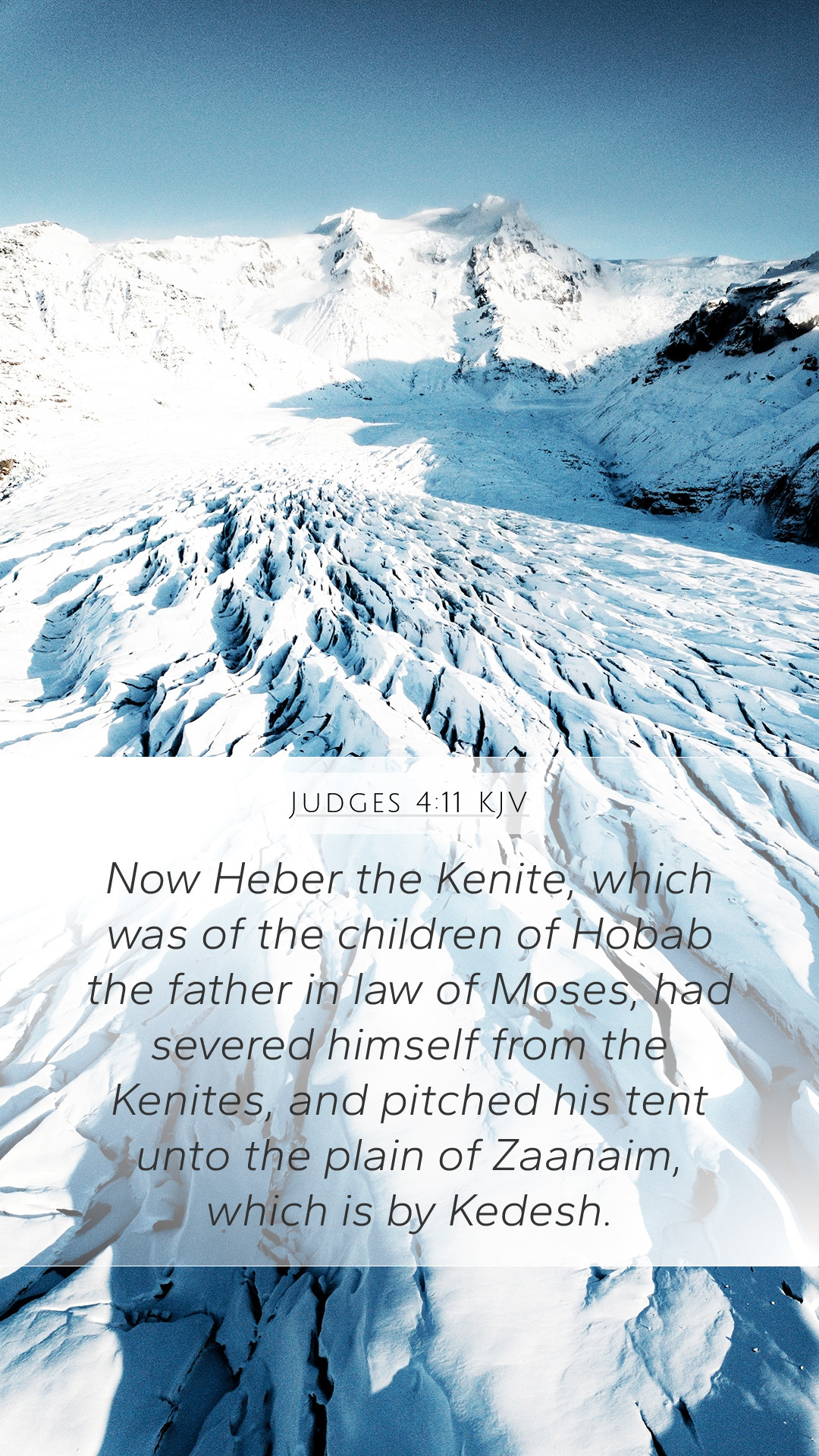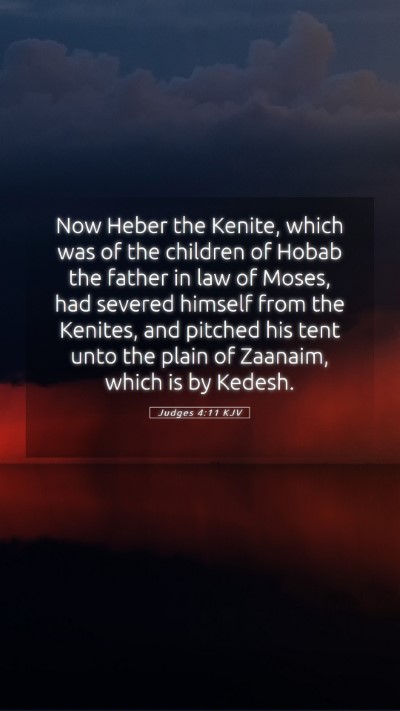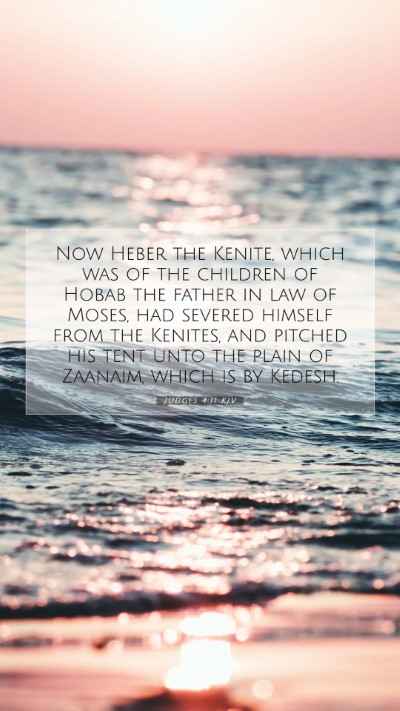Old Testament
Genesis Exodus Leviticus Numbers Deuteronomy Joshua Judges Ruth 1 Samuel 2 Samuel 1 Kings 2 Kings 1 Chronicles 2 Chronicles Ezra Nehemiah Esther Job Psalms Proverbs Ecclesiastes Song of Solomon Isaiah Jeremiah Lamentations Ezekiel Daniel Hosea Joel Amos Obadiah Jonah Micah Nahum Habakkuk Zephaniah Haggai Zechariah MalachiJudges 4:11 Meaning
What is the meaning of Judges 4:11?
Now Heber the Kenite, which was of the children of Hobab the father in law of Moses, had severed himself from the Kenites, and pitched his tent unto the plain of Zaanaim, which is by Kedesh.
Judges 4:11 Bible Verse Meaning
Understanding Judges 4:11
The verse Judges 4:11 states: "Now Heber the Kenite had separated himself from the Kenites, from the children of Hobab the father-in-law of Moses, and had pitched his tent near the oak in Zaanannim, which is near Kedesh."
Bible Verse Meaning
This verse introduces us to Heber the Kenite, a man who chose to distance himself from his fellow Kenites. This choice is significant, as it lays the groundwork for the larger narrative regarding Deborah and Barak's military campaign against Sisera. Heber's separation can be interpreted in various ways.
Commentary Insights
Drawing from the insights of Matthew Henry, this verse demonstrates the complexity of relationships and alliances during wartime. Heber's decision to situate himself away from his kin could signal a political maneuver or a spiritual quest for neutrality amidst conflict.
Albert Barnes highlights the geographical significance of Heber's location near Kedesh. Kedesh is a strategic site mentioned throughout Israel's history, which serves as a backdrop for upcoming events detailed later in the chapter.
Adam Clarke comments on the implications of Heber's actions, noting that they provide a context for understanding the allegiances formed during this tumultuous period in Israel's history. He suggests that Heber's separation may have played a crucial role in the unfolding narrative involving Deborah, Barak, and Sisera.
Bible Verse Interpretations
- Historical Context: Understanding Heber’s decision to move away from the Kenites can lead to insights about the shifting allegiances during the Israelite conquest of Canaan.
- Character Analysis: Heber is depicted as a man of action, who demonstrates a willingness to choose his path even in uncertain times.
- Strategic Positioning: The mention of his tent implies tactical foresight, as his location could allow him to gather information from both sides of the conflict.
Application of Judges 4:11
For the modern reader, Judges 4:11 encourages reflection on the importance of choices and their long-term implications. Just as Heber made a choice to separate from his kin, individuals today face decisions that can shape their paths and influence their environments.
Bible Study Insights
This verse is a reminder of the complexities of loyalty and the factors that influence our decisions. In the context of Bible study groups and online discussions, one can explore numerous topics related to discernment, courage, and the importance of seeking God's direction during critical times.
Cross References
- Judges 4:1-2 - The oppression of the Israelites by Jabin, king of Canaan.
- Exodus 2:18 - Early references to Jethro and the Kenites.
- 1 Samuel 15:6 - Saul's interactions with the Kenites.
How to Interpret Bible Verses
Understanding this verse involves examining its historical background, cultural context, and themes present in the narrative. By considering the motivations of characters like Heber, we gain a richer understanding of the call to loyalty and courage in the face of adversity.
Conclusion
Judges 4:11 offers profound insights into the human experience of choice and separation. As we engage in Bible study tools and resources, this verse invites us to reflect on our decisions and their implications in our lives today. Through both personal reflection and group discussions, the exploration of such scripture can enhance our understanding of Biblical narratives and their significance.


